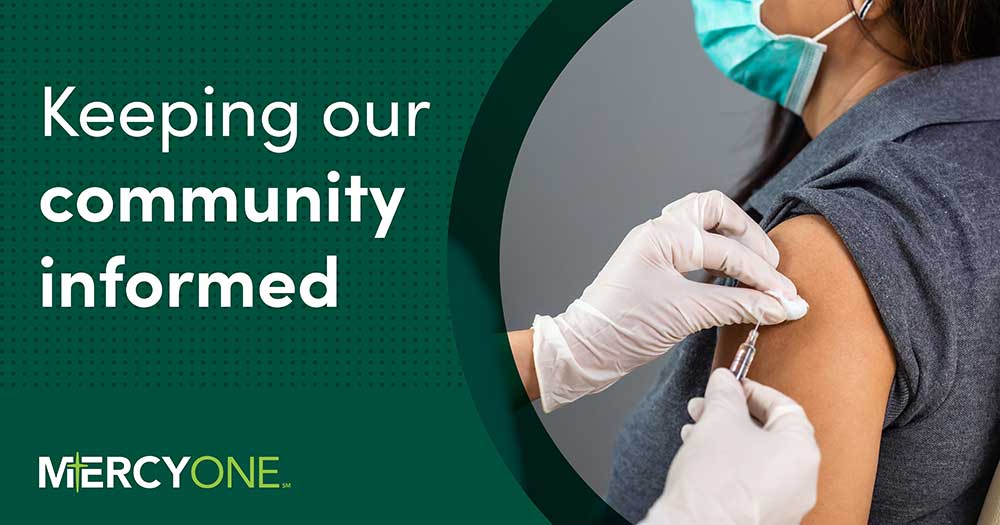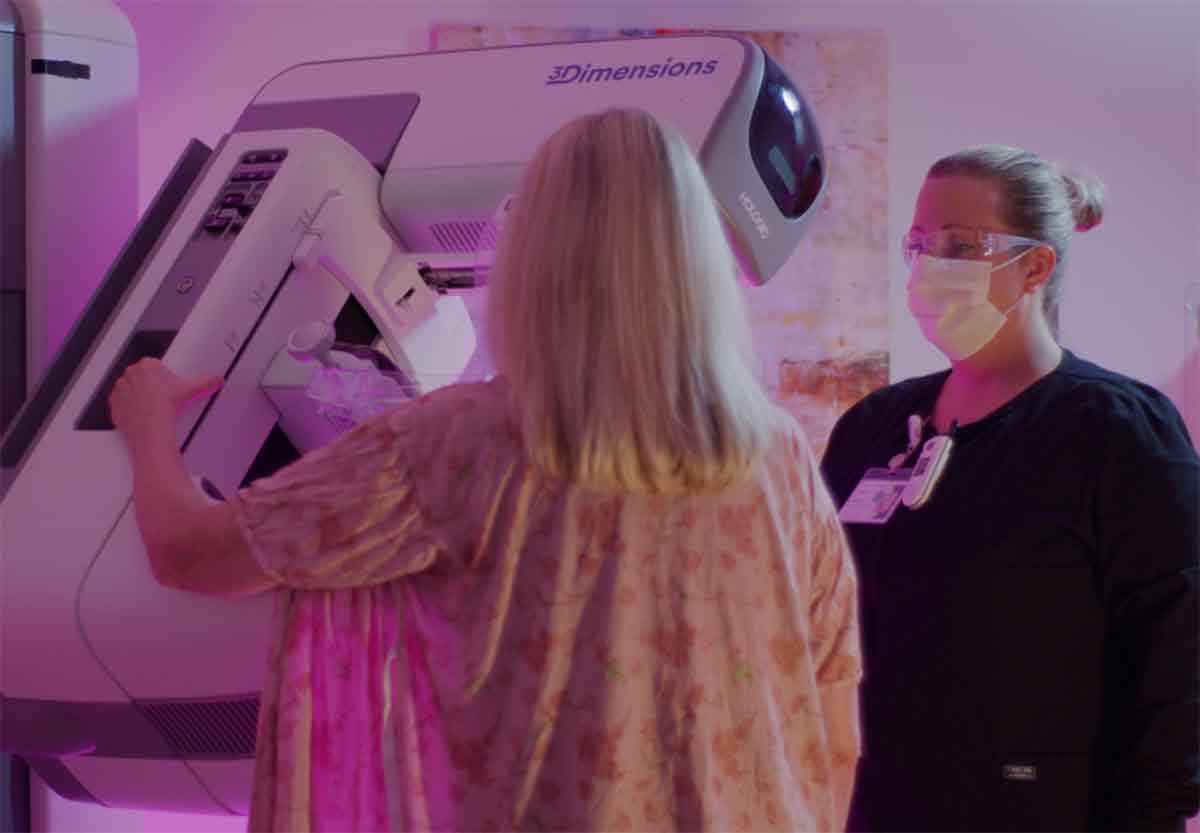The FDA and CDC now recommends the COVID-19 vaccine for children and adolescents ages 5 and older under Emergency Use Authorization. The COVID-19 vaccine for 5-11-year- is a smaller dose, so it is packaged differently than other COVID-19 vaccines. Scheduling a vaccination appointment for your child may vary by region.
For children 5-11 years old, the recommended dose is one-third the dosage of adults delivered in a two-dose regimen, 21 days apart. Children age 12-17 will receive the same dosing as adults Here’s everything you need to know to feel confident scheduling your child’s vaccine.
Are COVID-19 vaccines safe?
Yes, COVID-19 vaccines approved for emergency use authorization (EUA) in the United States are safe. The vaccines go through the same testing and clinical trials as all vaccines and no serious safety concerns have been identified.
What are the benefits of vaccinating children?
While most children are at lower risk for severe illness from COVID-19, there are still many unknown long-term effects. While uncommon, it is also possible for children infected with COVID-19 to become seriously ill or worse. Vaccination also allows for a safer return to activities and normal life.
Vaccination will:
- Help prevent the risk of serious illness like Multisystem Inflammatory Syndrome in Children (MIS-C)
- Keep your child from missing sporting events or extracurricular activities after exposure
- Reduce the need to quarantine if your child is exposed to COVID-19 at school or elsewhere
- Help prevent long-term effects of COVID-19
- Reduce the risk of passing COVID-19 infection to family members and others at high-risk for severe illness from COVID-19
How effective are COVID-19 vaccines in children ages 5-11?
Clinical trials show COVID-19 vaccines are very effective in children ages 5-11, preventing 90.7% of symptomatic infections. In fact, data shows the immune response for children was very similar to that of trial participants ages 16-25, even with the lower dosage administered to children.
What side effects are common in children?
Side effects can vary but are minimal. The most common side effects in children ages 5-11 include:
- Pain at the injection site
- Fatigue (feeling tired)
- Headache
- Diarrhea
- Muscle aches
- Joint stiffness
- More kids reported side effects with the second dose compared to the first dose.
- Rare side effects can happen, such as swollen lymph nodes or skin sensitivity, but these are not long-term and resolved in most cases in a few days.
How do we know about long term side effects? Decades of research.
Based on our knowledge of mRNA and the human body, we don't expect long-term side effects since it breaks down in the body in 72 hours.
- As will all vaccines, including the COVID-19 mRNA vaccines, concerning side effects have all occurred within 6-8 weeks after injection. Vaccine development is based on decades of research. Scientists have done a rigorous review of all available data before approving for children. Our history of science tells us that if there are no side effects in those first few weeks, we are confident that concerns that arise with any patient decades later are unlikely to be related to any vaccine.
- mRNA cannot be converted to or inserted into DNA. It's not scientifically possible.
Could COVID-19 vaccines impact puberty or fertility?
There is no clinical evidence to suggest COVID vaccines have effects on puberty or fertility. Based on our knowledge of mRNA, we are confident that the COVID-19 vaccine will not have long-term effects on puberty or fertility. mRNA cannot integrate with DNA or alter cells.
- Vaccine ingredients are cleared from the body quickly. mRNA is fragile and breaks down within 72 hours after injection. Ingredients do not linger in the body.
- Thousands upon thousands have gotten pregnant after receiving the COVID-19 vaccine.
- mRNA vaccine is not made up of COVID-19. It is only the protein.
- There are reports of menstrual cycle changes after the COVID-19 vaccine. This is due to the body mounting an immune response and a temporary side effect, like a fever.
What about concerns of myocarditis?
Myocarditis means "inflammation of the heart muscle. This can happen due to the robust immune response the vaccine can have on your body.
- It is very rare. We expect 26 cases of myocarditis per 1 million doses given. That's 0.0026%.
- This reaction was not observed in Pfizer’s clinical trial for children aged 5-11. While the remote possibility of myocarditis cannot be ruled out, the benefits of the vaccine still outweigh the risks. COVID-19 infection is far more likely to cause myocarditis than the vaccine, and infection can lead to other serious complications. In those cases, unfortunately, the myocarditis is more common, more severe, and last long-term. No kids have died of myocarditis after the COVID-19 vaccine.
My child had COVID. Do they need the vaccine? Yes.
- We know that "natural immunity" can be high at first. However, protection can drop off quickly or change based on circulating variants.
- Getting a vaccine, even for those who have already had COVID-19, strengthens your immune response.
- If you had COVID-19 once, it is possible to get a different strain again. The immune response after infection is not as focused. Evidence shows the vaccines protect you longer and for all the variants to date.
- Most importantly, the vaccine gives protection and prevents hospitalization for several of the COVID variants.
- Your child can get the COVID-19 vaccine once they are out of quarantine. There is no "waiting period," as another strain may come, and the vaccine will protect from getting hospitalized.
Can kids become very sick with COVID? Yes.
COVID-19 disease in kids can range from no symptoms to severe illness.
- As of October 2021, over 6.3 million COVID-19 pediatric cases have been reported.
- Only 43% of kids under 12 have natural immunity.
- 30% of hospitalizations for kids with COVID-19 had no underlying medical conditions. As of October 2021, there were 5,217 MIS-C cases linked to COVID-19 in kids. This multi-organ system effect makes children extremely ill and requires hospitalization, often in the ICU.
- Long COVID, or lingering COVID-19 symptoms, can lead to learning problems, heart problems, exercise fatigue with sports, and respiratory issues. This has been reported in about 8% of children who have had COVID-19.
- Since the pandemic began, over 600 pediatric deaths due to COVID-19 have been reported. It is now a top 10 cause of death for kids in the United States.
What are the ingredients? Put simply, it's fat, salt, electrolytes and sugar.
- Lipids: This "fatty layer" protects the delicate mRNA so it has time to work before getting chopped up. Polyethylene glycol (PEG), the most famous lipid, is also the main ingredient in MiraLAX (which you know about if your child has ever been constipated).
- Potassium chloride, monobasic potassium phosphate, sodium chloride, and dibasic sodium phosphate dihydrate and sucrose: These fancy names are just salt, some electrolytes, and sugar. These ingredients help keep the vaccine stable and are natural preservatives.
My child has a condition that makes them immunocompromised. Should they receive the vaccine?
Yes. People who are immunocompromised are more likely to be hospitalized and get seriously ill from COVID-19. It’s recommended kids get vaccinated if they are immunocompromised. These people may not get as much protection after two doses of the vaccine as do people with normal immune systems. For that reason, a third dose of the vaccine is now recommended 28 days after the second dose for 5-11-year-olds who are moderately or severely immunocompromised. It’s recommended that the third dose comes from same manufacturer as the first two doses. A fourth dose is recommended for children 12 and older at least four months after receiving an initial booster shot. If your child is immunocompromised, discuss the vaccine with their doctor for a personalized recommendation.
Scheduling a vaccination appointment for your child may vary by region. Ready to schedule your child's COVID-19 vaccine? Find vaccine information for your county.
Let’s build you an unbeatable care circle.
- Over 20,000 providers and supporters
- The region’s highest-rated specialty services
- More locations and more personalized care




